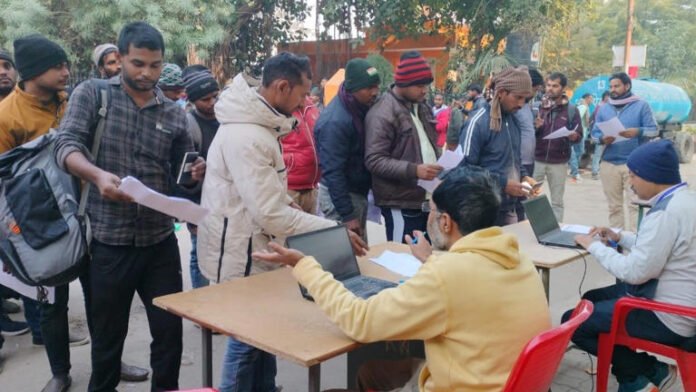The recent announcement of Uttar Pradesh and Haryana joining hands with Israel for a recruitment drive has sparked a ripple effect across the nation, with five more states expressing their intent to participate. This development not only underscores the growing collaboration between India and Israel but also signals a paradigm shift in how states approach employment opportunities and skill development.
The decision by Uttar Pradesh and Haryana to partner with Israel for recruitment initiatives was met with enthusiasm and optimism, particularly given Israel’s reputation as a global hub for innovation and technology. The collaboration aims to facilitate employment opportunities for Indian youth in various sectors, including agriculture, technology, and defense, through skill development programs and job placements.
Building on the success of this partnership, five additional states have now expressed their interest in joining the Israel recruitment drive. These states, eager to capitalize on the potential benefits of collaboration with Israel, recognize the opportunities for economic growth, technological advancement, and human capital development that such partnerships offer.
The expansion of the recruitment drive to include more states reflects a broader trend of decentralized governance and proactive state-level initiatives to address unemployment and skill shortages. By leveraging international partnerships and tapping into global expertise, states aim to bridge the gap between education and employment, thereby empowering youth and stimulating economic development.
One of the key drivers behind states’ eagerness to join the Israel recruitment drive is the recognition of Israel’s expertise in sectors such as agriculture, water management, and defense. Israel’s pioneering innovations in agriculture, including drip irrigation and precision farming techniques, hold immense potential for enhancing productivity and sustainability in Indian agriculture. Similarly, Israel’s advancements in defense technology offer opportunities for collaboration in defense manufacturing and security solutions.
Moreover, the partnership with Israel is seen as a strategic move to enhance India’s technological capabilities and foster innovation-driven growth. By exposing Indian youth to cutting-edge technologies and best practices, states aim to nurture a skilled workforce capable of driving forward the country’s development agenda and competing in the global marketplace.
Furthermore, the Israel recruitment drive aligns with India’s broader diplomatic and strategic objectives of strengthening ties with key partners in the international community. Israel, often hailed as the “Startup Nation,” is renowned for its entrepreneurial spirit, research and development ecosystem, and culture of innovation. Collaborating with Israel not only opens doors for economic cooperation but also facilitates knowledge exchange and capacity building in areas of mutual interest.
However, while the prospect of joining the Israel recruitment drive holds immense promise, states must navigate potential challenges and ensure effective implementation. One such challenge is the need to tailor programs and initiatives to suit the specific needs and priorities of each state. What works in one state may not necessarily be applicable or effective in another, highlighting the importance of customization and localization in program design and implementation.
Additionally, states must address logistical and administrative hurdles to ensure smooth coordination and execution of recruitment initiatives. This includes streamlining bureaucratic processes, establishing clear communication channels, and providing adequate support and resources to stakeholders involved in the recruitment drive.
Moreover, states must also prioritize transparency, accountability, and inclusivity in their partnership with Israel to ensure that benefits accrue equitably to all segments of society. This entails engaging with local communities, consulting with relevant stakeholders, and promoting gender-sensitive and socially inclusive policies and practices.
In addition, the decision by five more states to seek participation in the Israel recruitment drive reflects a growing recognition of the potential benefits of international collaboration in addressing employment challenges and fostering economic growth. By leveraging Israel’s expertise and innovation, states aim to equip Indian youth with the skills and opportunities needed to thrive in an increasingly competitive global landscape. However, realizing the full potential of these partnerships will require concerted efforts to overcome challenges and ensure inclusive and sustainable development for all.

